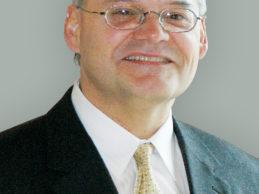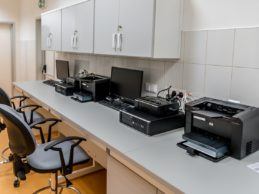In the era of value-based care provision, automated benchmarking technology in hospitals enables real-world, reliable data insights for understanding, improving and promoting provider performance.Value-based healthcare is here to stay. Hospitals across the U.S. are on a quest to deliver successful outcomes at the lowest overall cost, improving care delivery and patient wellness. Nationwide, 34 percent of total healthcare payments were tied to alternative payment models in 2017, a steady
Read More
Health IT & Digital Health-Opinion | Op-Eds | Guest Columns | Analysis, Insights - HIT Consultant
When Will Health IT Become Part of the Solution (Rather than the Problem) for Physicians?
I began practicing medicine in the 1990s as a hospitalist. On an average day, I’d see 10 to 12 patients. I would spend any downtime on notes and billing. More importantly, I had time to revisit interesting cases, converse with colleagues and chat with patients and their families.In 2018, that’s no longer what a day in the life of a physician looks like. I’m required to see more patients per shift, and my administrative tasks are much more time-consuming, due to a combination of regulations
Read More
Why Healthcare’s Spike in Cloud Adoption Raises Questions for Hospitals & Security Practitioners
It might come as a surprise, being in one of the most highly-regulated industries around, that the healthcare sector has made significant strides when it comes to embracing the public cloud and the myriad cloud applications that exist today. Messaging apps like Slack enable rapid communication while file sync and share apps like Box enable instant collaboration. A good example of a cloud app that has become essential in large enterprises is Microsoft’s Office 365. Adoption in the healthcare
Read More
Utilizing Blockchain in Healthcare: 3 Lessons Learned from Abroad
According to the Edelman Trust Barometer, America is suffering from a serious trust issue, and one of the areas which Americans seem to have the least faith in is their healthcare system. According to a recent New York Times article, in 1966, more than three-fourths of Americans had great confidence in medical practitioners, compared to as little as 34 percent today.Many argue that the US healthcare system is deeply flawed and is designed to benefit medical providers and insurance carriers
Read More
Digital Innovation & the First Mover Advantage for Health Systems
It’s no secret that healthcare has long lagged other industries when it comes to the adoption of digital technology. Large, complex organizations like health systems are notoriously slow to change, but healthcare industry trends – particularly the rise of consumerism – are driving a clear urgency around digital competence. In fact, 64% of hospital and health system leaders in the latest Kaufman Hall consumerism survey identified the need to use digital tools to engage consumers as a high
Read More
Why Hospitals Are the Ideal “Garage” for MedTech Startups
In 1796, when smallpox was truly a world epidemic, Dr. Edward Jenner inoculated his gardener’s son with a vaccine derived from another patient’s cowpox blister. At the time, the disease was killing 10 percent of the population. While other treatments for smallpox existed, it was Jenner’s that could be easily replicated around the world. And in hindsight, we know that a key factor in Jenner’s development of the vaccine was his access to patients, his scientific knowledge and his passion to heal.
Read More
Want to Improve Public Health Outcomes? Start with Housing
A well-worn axiom says that “hope is not a plan.” Indeed, hope alone is such a hands-up abdication of planning that editor Thomas Mowle was inspired to use the phrase as the title of his 2007 book of essays on the war in Iraq, which says something.Still, if we play with syntax and add a few words, we can say that every successful plan should offer a measure of hope—hope for success, an improved reality, greater opportunity.With the twin American scourges of homelessness and addiction, hope
Read More
How Marin General Hospital Adopts “Virtual Presence” to Transform the Patient Experience
Mark Zielazinski, CTO at Marin General Hospital shares how their organization is integrating "virtual presence" in the in-hospital setting - allowing patients, providers, and caregivers to clearly communicate and improve clinical outcomes.Telemedicine has resulted in money-saving efficiencies to hospital operations, improved patient safety, and given more people access to healthcare service among other benefits. In use for a number of years, it’s here to stay as a vital tool in patient care.At
Read More
3 Major Misconceptions About Managed Print Services in Healthcare
Managed Print Services (MPS) is a concept that has been around for a long time and has many different definitions and even more approaches. At its very core, Managed Print Services is about controlling costs, providing transparency to utilization, and supporting the technical print environment. With that said there are many misconceptions when it comes to Managed Print Services overall and especially within healthcare.The healthcare environment is quite unique and provides challenges to many of
Read More
Today’s Behavioral Health Providers are Failing: Why Data Analytics is the Solution
Today, behavioral health is more important than ever. Major news outlets, from The New York Times to The Wall Street Journal, constantly cover the mental health epidemics wracking the nation, be it widespread opioid abuse or the steady, upward creep of suicide and self-harm.Spurred on by the scope and severity of these societal problems (as well as new legislation passed to address them), the behavioral health sector has grown exponentially. Yet this field is not without its problems: despite
Read More










